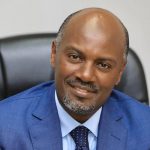H.E. Attilio Pacifici said that integration is the way to go.
He pointed out that besides trade, the European Union
was formed to create common goals and avoid war.
Attilio emphasised that a balance can be struck between
sovereignty and integration. “Variety is our biggest
strength.”
However, Philip Kasaija argued that the East African
Community has structures but no real functionality.
“Does EAC make sense to the ordinary person? There is
disconnect between reality and theory. It is supposed to be
private sector-led and people-centreed, but is it?”
Beatrice Kiraso chided Kasaija for disputing the functional
existence of EAC, and stressed that countries “are small
and weak alone…It’s not perfect but there is hope. Strides
may not be as big and fast but they exist. Let’s not dismiss
that there is no EAC.”
Is there an alternative to integration?
Andrew Mwenda thinks that military intervention is the
best form of integration the EAC can embrace since it
attracts trade. “Wherever Ugandan troops go, our traders
follow.” He said that in East Africa, integration will increase
income disparities since Kenya, which is more economically
stable, would enjoy more trade benefits and the poorer
countries would become despondent. Mwenda also said
that creating one big block would increase bureaucracy
and stifle development.
The audience recommended the following:
• If integration is to happen, citizens need to understand
it and what they will reap.
• Countries cannot deal with issues alone, thus the need
for integration.
Kampala Geopolitics Conference




